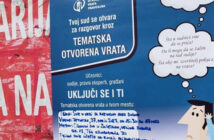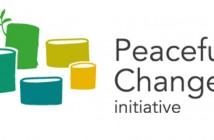The purpose of the project is to
(1) map the process of legislation development, adoption and monitoring of implementation of pieces of legislation
(2) recommend action plan based on the conclusions
(3) generate public debate
(4) influence clear ownership from the government and relevant stakeholders.
Planned outputs:
1. Scoping study of legislative process, to include:
– full situation assessment
– recommendations for action by parliamentary and government bodies
– Recommendations for donor community.
– action plan for involvement of citizens in the legislative process
2. Substantive public debate on parliamentary transparency generated.
3. Government recognize need to establish mechanisms to involve citizens in the legislative process.
The meeting of the members of YUCOM’s expert team with the Head of the Department of Legislative Affairs of the National Assembly of Serbia
YUCOM’s representatives, Milan Antonijevic and Katarina Golubovic had a meeting with the Head of the Department of Legislative Affairs of the National Assembly of Serbia, Dr Novica Kulic in December 2010. in the National Assembly, where he was introduced with the aim of the project. Dr. Kulic said that the project is of great importance for the National Assembly and that it fits into the strategy of opening of the assembly to citizens.
In this sense, several key issues were indentified to consider:
TOPIC: PAST PROXIMATE NGO SECTOR INVOLVEMENT IN THE WORK OF THE ASSEMBLY
A general assessment and identified barriers
The involvement of NGOs in the National Assembly has not been satisfactory. Speaking about the obstacles to engaging citizens and non-governmental organizations without the existence of institutional framework in the work of the assembly, Dr. Novica Kulic said that obstacles are no longer ideological, but that there is great loss of knowledge as by members and by staff, so the first obstacle to the establishment relationships among actors in the Parliament and NGOs fear of displaying ignorance.
An example of good practice
A good example of the involvement of NGOs has just YUCOM work with the Committee on Petitions and Proposals. YUCOM’s representatives made contact with the Parliamentary Service immediately after the constitution of the Committee and staff met with prepared material on the legal nature of a petition or proposal and practices on them at all levels of government in Serbia and elsewhere. Officials presented the work of YUCOM to Committee members, and quickly accepted the cooperation of the President of the Committee on Petitions and Proposals . As early as the report of 10 June 2010. The Committee on Petitions and Proposals of the National Assembly, the part of V stated: “In order to achieve the activities of the Committee, in accordance with its mandate, the Committee will pay special attention to the institutionalization of direct contact with citizens regarding what they will be closer to determine the manner, place and time direct contacts between citizens and the deputies – members of this Committee. (…) The Committee considers that the special interest of establishing relations of cooperation with the so-called. NGO sector. This is because NGOs can provide important information on the problems and interests of citizens, as well as to offer different modes of action that will enable the Committee to make the effort as a more direct insight into the issues and interests of citizens in order to find ways to overcome them, or exercise. “YUCOM, throughout the prepared materials and meetings with the Board, had directed the work of the recently formed Committee and strengthened it to, through pre-formulated recommendations for the work, take concrete steps to establish an effective mechanism for dealing with petitions and proposals. Specifically, on the basis of YUCOM’s publication named “Petitions and proposals-law and practice”, which was issued in December 2010. year, which contains, among other things, research on local governments by petitions and proposals, the Committee has designed that his work is directed at connecting the board at the local level and the Republican committee, so this parliamentary body would have more direct insight into the problems of the territory of Serbia. Session at which this issue should be discussed is scheduled for 28.12.2010. year and there have been notified YUCOM’s representatives : “The fourth session of the Committee on Petitions and Proposals by the Chairman of Sasha Dujović convened for 28 December, was not held because there was no quorum for the work and decision making. The committee at this session should consider information on the organization of special bodies responsible for examining complaints, petitions and proposals of citizens at local executive level in Serbia … ”
Recommendations:
– principle is that the education officers who assist the board is crucial, bearing in mind that the secretaries of the parliamentary committees are often the parliamentary groups consultants (which put additional strain on the service). Non-governmental organizations should use this fact and to establish cooperation with officials of the National Assembly with education, which the NGO sector, as specialized, can provide.
– High level of organization and expertise of NGOs must be recognized through institutionalization of participation of NGOs in decision-making process.
TOPIC: LAW ON THE PEOPLE’S INITIATIVE AND REFERENDUM
The Law on People’s Initiative and Referendum in 1998. is outdated and legislates rigid process of realization of people’s initiatives. In The Constitution of the Republic of Serbia since 2006. the people’s initiative has been recognized as an instrument for the realization of Article 2, paragraph 2 of the Constitution of the Republic of Serbia, or the sovereignty of nations. The sovereignty of nation suggests building which imposes a more efficient system of citizen participation in decision-making. Although the constitutional law of the implementation of the Constitution prescribes harmonization of this law with the Constitution until 2009. years, this has not yet been adopted. The making of new law had taken part on, the draft was prepared, which is in the words of Novica Kulic, who was a member of the working group for drafting the Law on People’s Initiative and Referendum, in the Ministry of Public Administration and Local Government. However, it is evident that the range of proposed new law exhausts through the right to propose laws.
In an interview with Novica Kulic further noted that, in the absence of obligation to consider proposals that includes the number of 30,000 citizens, a law on lobbying should be worked on, which will institutionalize a relationship between organized citizens and representatives.
Regardless of the modest scope of a possible new law on people’s initiative and referendum, there are political obstacles to its adoption. One of the main obstacles is reflected in the notion of a referendum in Serbia. Specifically, the referendum is seen as a tool for separation.
TOPIC: THE PROCEDURE IN NATIONAL ASSEMBLY AFTER THE LAW PROPOSAL
The meeting also noted the devastating fact that the law proposals of the authorized proposers (citizens, Vojvodina Assembly and the PM) are not considered by the National Assembly. As indicated by Kulic, the possibility of a proposal on the agenda depends on the political assessment of the National Assembly Speaker (President). Before a proposal is put on the agenda, the Speaker examines political support through the heads of parliamentary groups’. If such support does not exist, the Speaker uses discretion and does not put the proposal on the agenda. Putting the proposal on the agenda is dictated by the needs of European integration.
As for the people’s initiative, it must be noted that the proposal first came to the Secretary of the National Assembly – if the proposal does not meet the requirements prescribed by the Rules, the proposal is rejected. If it meets it, the proposal is submitted to the relevant committees for consideration. After consideration, they are submitted to the Speaker of the National Assembly, who as explained above, decides whether a proposal is put on the agenda.
Regarding the current practice, it would have to be resorted to institutionalization of impact on political support. As a solution, Novica Kulic sees adoption of the Law on Lobbying. This law is not necessary for every country, however, in Serbia, where political culture is not high, we should institutionalize relations wherever necessary.
TOPIC: ABOUT NORMATIVE PRECONDITIONS FOR INVOLVEMENT OF THE CITIZENS IN DECISION-MAKING
It was noted at the meeting that the new Committee structure under the new Rules of Procedure of the National Assembly provides the institutionalization of relations between citizens and the Committee in deciding on legislation. Although it is explicitly stated in the Rules that Committee for Environmental Protection can enable the presence and participation of citizens and citizens’ associations at a meeting of the Committee in a discussion about certain issues in the field of environmental protection, such a regime, according to the Novica Kulic applies to all.
The most surprising fact is that one committee is given the explicit authority to engage in the institutionalization and participation of the citizens’ deputies in decision-making process such as – the Committee on Labor and Social welfare, social inclusion and poverty reduction.
In this regard, the meeting also agreed that efforts should be made to prepare recommendations for the institutionalization of relations between citizens and the Committee, in order to be presented to the members and Chairman of the Committee immediately after the establishment of the Committee on Labor and Social welfare, social inclusion and poverty reduction.
TOPIC: EXAMPLES OF GOOD PRACTICE FOR INVOLVEMENT OF CITIZENS IN DECISION-MAKING PROCESS
The best practice for involvement of citizens in decision-making process can be found in the United States. As well as Novica Kulic said, the importance of citizens is the largest in terms of a formal requirement that any draft becomes an official law proposal – given a written reasoned opinion of non-governmental organizations.





